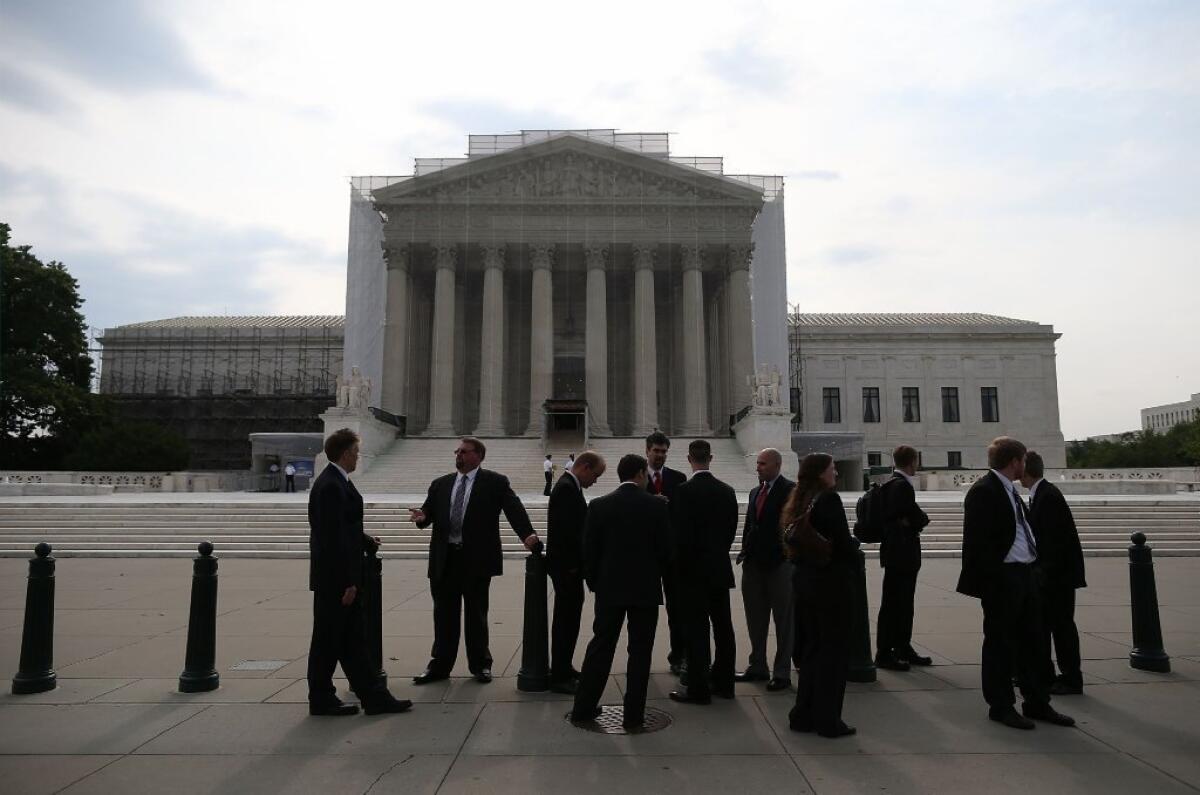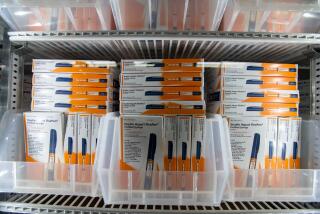Drug patents: Pay-for-delay’s bad day in court

The Supreme Court struck a blow for consumers Monday in a closely watched patent case, ruling that manufacturers of brand-name drugs don’t have the right to buy off generic-drug makers by giving them a share of their monopoly profits.
The 5-3 ruling was messier than the elegantly simple results advocated by the Federal Trade Commission on the one side and the pharmaceutical industry on the other. But it should deter drug companies from holding off competitors by gouging consumers.
At issue was a technique called “pay to delay,” in which the manufacturer of a patented brand-name drug pays generic drug makers not to enter the market until the brand-name medication is at or near the end of its patent protection. In this case, Solvay Pharmaceuticals had pay-for-delay deals with Actavis and two other drug companies to stop them from competing with Solvey’s AndroGel, a patented treatment for low testosterone.
Actavis had won approval from the Food and Drug Administration to sell a generic version of AndroGel by asserting that Solvay’s patent was invalid. Two other generic makers mounted their own challenge to Solvay’s patent. Solvay sued, the generic companies countersued, and three years later the cases settled.
The settlement called for Solvay to pay its rivals hundreds of millions of dollars to stay out of AndroGel’s market for nine years, or about five and a half years before the challenged patent was due to expire. The generic makers also agreed to urge doctors to prescribe AndroGel.
The FTC sued, arguing that pay-for-delay deals were illegal. But the lower courts agreed with Actavis that such deals are legal as long as their terms expire before the disputed patent does. In other words, they said there’s nothing wrong with blocking would-be competitors to AndroGel during the years that Solvay’s patent gave it a monopoly over AndroGel’s market.
Writing for the majority, Justice Stephen Breyer said courts should judge pay-for-delay deals case by case. A deal may violate federal antitrust law if the maker of a brand-name drug with a potentially weak patent holds off a generic manufacturer with a huge payout, Breyer wrote.
“The payment may ... provide strong evidence that the patentee seeks to induce the generic challenger to abandon its claim with a share of its monopoly profits that would otherwise be lost in the competitive market,” Breyer argued. The court, he wrote, can’t blindly accept settlements that make rival drug companies happy at consumers’ expense.
Still, Breyer acknowledged that there may be times when such deals aren’t anti-competitive -- for example, when generic makers receive relatively small payouts in exchange for promoting a brand-name drug. Wrote Breyer: “[T]he likelihood of a reverse payment bringing about anticompetitive effects depends upon its size, its scale in relation to the payor’s anticipated future litigation costs, its independence from other services for which it might represent payment, and the lack of any other convincing justification.”
In short, pay-for-delay isn’t dead, but such deals are going to come under a lot more scrutiny.
ALSO:
Newton: The real test for Garcetti
Tied in knots over interfaith weddings
Follow Jon Healey on Twitter @jcahealey.
More to Read
A cure for the common opinion
Get thought-provoking perspectives with our weekly newsletter.
You may occasionally receive promotional content from the Los Angeles Times.











